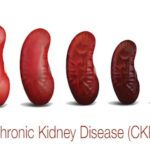Awareness and understanding of postpartum symptoms among new mothers is imperative
New Delhi, January 14, 2019 : The Health Department of Kerala State is integrating mental health with maternal and child health programme to initiate a primary care screening programme for the early detection and treatment of perinatal depression. This is under the light of the latter emerging as a major cause for concern in the Kerala. About 7% of the 187 maternal deaths reported in Kerala in 2017/18 were suicides, making it the third cause of maternal mortality in the state after post-partum hemorrhage and pre-eclampsia.
Perinatal depression, which is defined as depression during pregnancy and childbirth, lasting for over a year after delivery, goes mostly undetected and untreated, till something as drastic as a suicide bid occurs. The issue has emerged as a public health priority as doctors now recognize the long-term effect that perinatal depression can have on infants as well.
Speaking about this, Padma Shri Awardee, Dr KK Aggarwal, President, HCFI, said, “This is a highly commendable initiative by the Kerala state health department. Emerging evidence on the outcomes of maternal depression on the brain development of the infant and their cognitive development, emotional and behavioral aspects indicate the urgency with which this issue needs to be addressed. It is not a phenomenon that is restricted to the lower income strata of the society but can affect any woman. Some reasons for perinatal depression could be financial problems, discord with in-laws, and domestic violence. The anxiety of having to manage a new life, an infant, and the expectations from a new mother can also lead to this condition.”
Under the initiative being taken by the Kerala state government, training is being provided to relevant stakeholders on recognizing depressive disorders amongst young mothers and mothers-to-be. A screening will be done once each during the first three trimesters and post-partum, in the 6th and 14th week and 9th month. Psycho social counselling will be offered to all eligible couples and followed up post-partum into a year.
Adding further, Dr Aggarwal, who is also the Group Editor-in-Chief of IJCP, said, “Many women do not recognize or are unable to understand the symptoms that follow childbirth. Then there are others who are unwilling to seek medical help as psychiatric problems are not taken very well in the Indian society even today. There is a need to create awareness about this condition among pregnant women, new mothers, and the family and counsel them on how they can support the women through this phase.”
Some tips for would-be mothers to cope with childbirth and postpartum anxiety
- Get enough rest. Tiredness can make anxiety worse and give you a constant gloomy feeling. Try catching small naps when the baby is asleep.
- Eat at smaller intervals. Low energy levels can impact mental health.
- Try not to feel guilty about not helping around the house. Understand that this is a temporary phase and it is not wrong to ask for help.
- Indulge in activities that can help you in getting distracted from any negative thoughts, such as reading a book and listening to music. Take a short walk if it helps you feel better
- Lastly, do not compare yourself with other mothers. Each pregnancy is different and understanding this will help you feel better.







